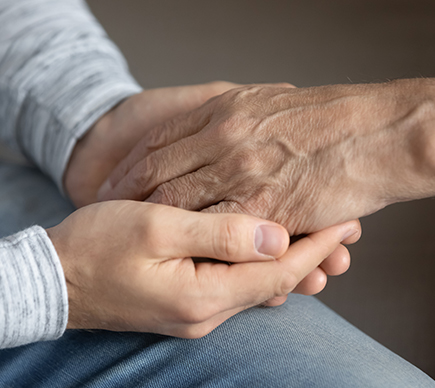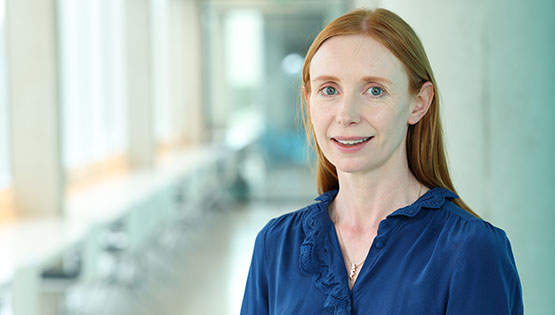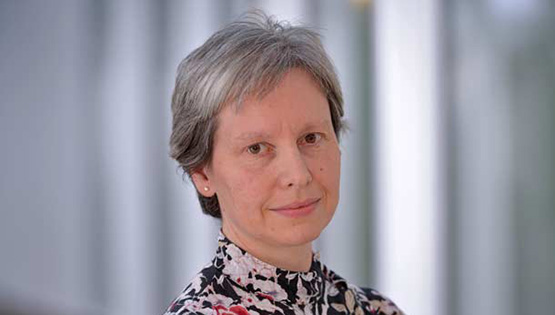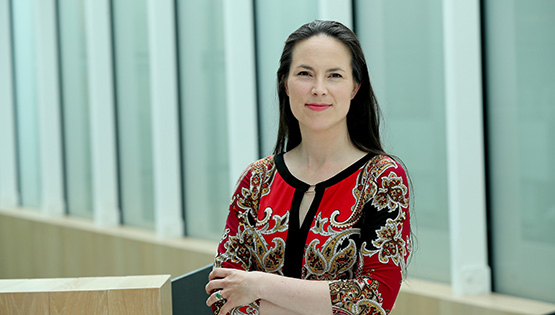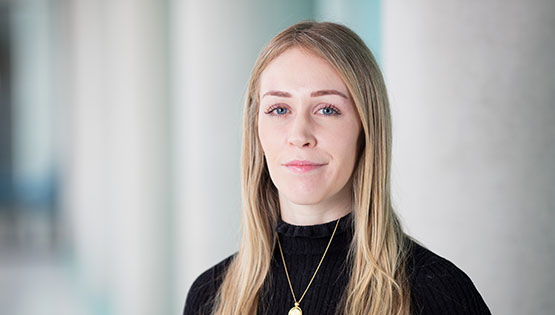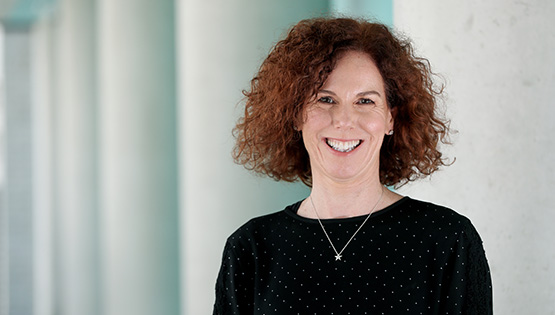Postgraduate Diploma
1 year
Hybrid - Part-time
60 ECTS
September 2026
About
On the PgDip in Rehabilitation from RCSI School of Physiotherapy you'll learn from experts from a range of disciplines who promote interdisciplinary learning and practice. Year 1 covers topics such as neuroscience, neurorehabilitation and ageing, alongside optional modules to tailor your learning to your personal goals.
Upon successful completion of Year 1 of the programme, you will be awarded a Postgraduate Diploma in Rehabilitation (60 ECTS).
If you wish to gain an MSc (90 ECTS), you may continue your studies in Year 2 of the programme, in which you will complete a dissertation in your selected area of study as pertaining to the programme. This programme is two years, part-time.
Please note: this programme runs on a hybrid model: 1.5 or two in-person sessions are required per module, with the remainder of content delivered online.
This course is a Level 9 award on the Irish National Framework of Qualifications and is subject to final accrediation.
Focus on enhancing function through rehabilitation across the lifespan
Develop advanced clinical skills and innovative care strategies
Apply research methods to drive improvements in patient outcomes
Gain expertise in interdisciplinary teamwork and leadership
Focus on evidence-based practice
Prepare to contribute to research and practice
Suitable for
This MSc is designed for health care professionals working in rehabilitation settings who wish to advance their career – whether in a leadership role, in research, or by advancing their clinical expertise.
What you will learn
This module develops knowledge in neuroscience, underpinning clinical reasoning in managing neurological conditions and older adults.
Provides advanced knowledge of current neuro-rehabilitation practice, developing critical and analytical thinking for neurological conditions.
Enhances understanding of the research process through protocol design.
Develops skills to search, retrieve, and appraise evidence for professional practice, combining online and in-person workshops.
Develops knowledge in stroke rehabilitation, underpinning clinical reasoning in stroke patient management.
Delivered online, this module covers essential leadership and management skills in healthcare, aiding transition from clinical roles to leadership.
The care and treatment of children with neurodisability.
Advances knowledge of major issues in gerontology and applies this knowledge to work settings.
Enhances knowledge of health behaviour change psychology, focusing on promoting physical activity in long-term conditions.
What our students say

"I reflect upon the MSc in Neurology and Gerontology [now MSc in Rehabilitation] in the RCSI School of Physiotherapy as a pivotal point in my career. The lecturers and RCSI staff and facilities provided a positive and supportive environment."
Faculty highlight
Register your interest
Are you interested in learning more about this programme? Submit your details below and a member of the team will be in touch with you shortly.
Course information
On completion of this course you will:
- Gain knowledge of the theoretical and practical aspects of key topics in rehabilitation.
- Have knowledge and skills in the application of research processes and scientific methodologies to inform evidence-based practice in rehabilitation.
- Be able to apply the knowledge of the research processes while conducting original research in a related area that is of a standard suitable for publication in a peer-reviewed scientific journal.
- Demonstrate critical reflection and evaluation of clinical practice in the context of a changing health care setting; developing a foundation for on-going continuing professional development.
- Have the skills to act as a leader and innovator in rehabilitation.
Course timetables will be published when available.
You will study across core modules in year 1, with the choice between two optional modules (Stroke Rehabilitation OR Physical Activity and Health Behaviour Change in Clinical Populations).
| Credits | Description |
|---|---|
| Neuroscience (10 ECTS)
|
This module will develop your knowledge in the area of neuroscience and will underpin clinical reasoning in the management of people with neurological conditions and older adults. |
| Neurorehabilitation (10 ECTS) |
This module will provide you with an advanced knowledge of current neuro-rehabilitation practice and develop your critical and analytical thinking processes when applying and developing treatment approaches for people with neurological conditions. |
| Ageing/Gerontology (10 ECTS) |
This module will advance your knowledge of contemporary major issues in gerontology and the application of this knowledge to your work settings. |
| Stroke Rehabilitation – optional module (10 ECTS) |
This module will develop your knowledge in the area of stroke rehabilitation and will underpin clinical reasoning in the management of stroke patients. |
| Leadership and Management Essentials in Healthcare (5 ECTS) | This module is delivered by the RCSI Graduate School of Healthcare Management. It is delivered fully online to various healthcare professionals and managers through synchronous and asynchronous content. The module considers the essential components, competencies and skills of leaders and managers as applied to health and related contexts. It considers why leadership and management is necessary, their challenges and contribution to health and health improvement. It is of particular benefit to those transitioning from a primarily clinical / practitioner roles to positions where one is required to lead and manage others. The module is designed to help you understand what is likely to be expected in terms of how you related to, work with and support a wide range of people and processes. |
| Translating Evidence to Practice (5 ECTS) |
Evidence-based practice (EBP) in healthcare ensures that clinical decision making through to policy decision making, is informed by best available research evidence. This module aims to develop the knowledge and skills of the healthcare practitioner to become an effective user of research findings and to synthesise this knowledge for application to their practice. Emphasis will be placed on developing skills to search, retrieve and appraise appropriate evidence for application to professional practice. This module will be delivered through online asynchronous content and in-person workshops. |
| Research Methods (10 ECTS) |
Postgraduate Diploma students who undertake this module will, in designing a protocol, gain a much deeper understanding of the research process. This module will prove particularly useful for students who go on to undertake the project in Year 2. |
| Physical Activity and Health Behaviour Change in Clinical Populations - optional module (10 ECTS) |
The module is designed to enhance the student’s knowledge of the psychology of health behaviour change with a particular emphasis on the promotion of physical activity in those with long-term conditions. |
Assessments
Your learning on each module is assessed by one of a number of methods, including coursework assignments, research proposal and research dissertation.
Your learning on each module is assessed by one of a number of methods, including coursework assignments, research proposal and research dissertation.
On successful completion of Year 1 of the programme, you will be awarded a Postgraduate Diploma in Rehabilitation (60 ECTS).
If you wish to gain an MSc (90ECTS), you may continue your studies in Year 2 of the programme, in which you will complete a dissertation in your selected area of study as pertaining to the programme. This programme is two years, part-time.
We are proud to be a recognised University of the National University of Ireland (NUI).
Recognition by ministries and bodies in other jurisdictions must be determined by the individual applicants.
Admissions
To be considered for entry into the programme, applicants must:
- Be a healthcare professional, demonstrated by holding, or being eligible for, registration with a recognised statutory regulator (e.g., CORU, Nursing and Midwifery Board of Ireland, Irish Medical Council), an equivalent overseas authority, or membership/eligibility for an appropriate professional body where statutory regulation is not yet in place (e.g., the Psychological Society of Ireland).
- Hold a bachelor degree. If you don’t hold a bachelor degree, please see the recognition of prior learning pathway.
- Experience in neurology and gerontology desirable, but not essential.
Each application will be assessed on an individual basis.
If English is not your first language, you will also need to supply a copy of an academic IELTS examination or equivalent, with an overall score of at least 6.5 and no individual band below 6.5. English language requirements for RCSI Postgraduate programmes are published here.
If you do not meet the minimum academic requirements above, you may still be eligible to apply through recognition of prior learning (RPL). RPL is the assessment of knowledge, skills and competence previously acquired.
Learning occurs in many contexts which include work, involvement in social and community activities, or learning through life experience generally. RPL does not give credit for experience as such; rather it considers the learning that was acquired as a result of the experience.
RPL may be used to gain:
- Admission to courses/programmes where a person may not have obtained the standard entry requirements.
- Exemptions from course modules which duplicate the learning outcomes an individual has already demonstrably acquired through prior learning.
Course fee: €5,910.
Please note:
- Fee includes all resources, access to our award-winning online learning portal and access to extensive RCSI-only databases.
- Fee includes an NUI fee.
- Fee is payable via the above schedule, where relevant.
- If you have outstanding fees you will not be entitled to receive your grades or be eligible to progress and or graduate (VLE and Library privileges will be withdrawn in these cases).
- RCSI accepts no obligation to refund any fee, or part thereof, in respect of a student who chooses to withdraw from a programme.
- If you choose to withdraw from a programme you are liable for full fees owed for the seat on that programme.
- All NUI parchments are issued in Latin; you will be required to pay an additional fee of €50 to NUI if you wish to have a parchment published in English.
- Fees are subject to review annually.
- If you are being sponsored or funded by your employer you should upload a funding confirmation letter in the document upload section on the application portal.
International Document Delivery
To ensure safe and timely delivery of graduation documents to international addresses, we use secure courier services. Graduates are required to cover courier service fees for document delivery to international addresses. Delivery fees vary based on region, and full details about costs are shared in advance of conferring.
How to apply
Applications for this course are now open for the next intake. Please begin your application by completing the form below.
Please ensure you attach the following supporting documents with your application:
- Clear copy of a valid passport.
- Copies of your academic transcripts/degree.
- Copy of your CV.
- English proficiency test (if required).
Already begun your application? Complete it via our application portal now.
Continue your application
